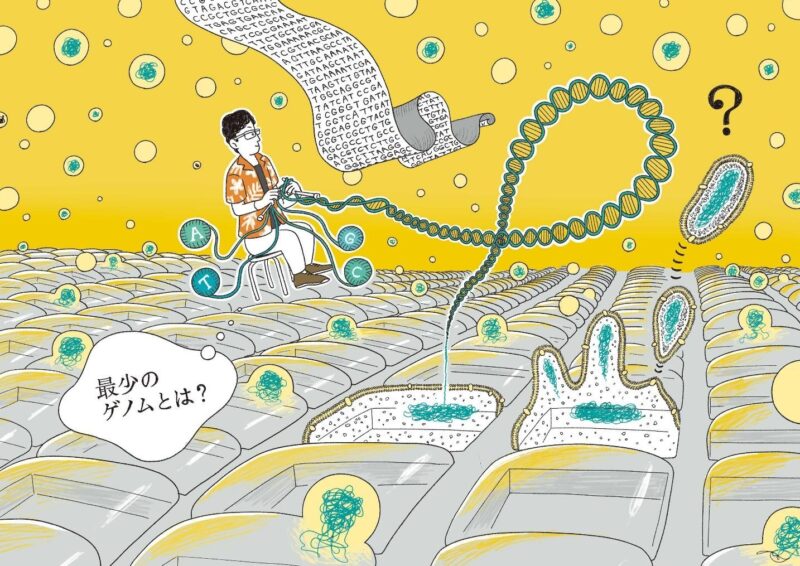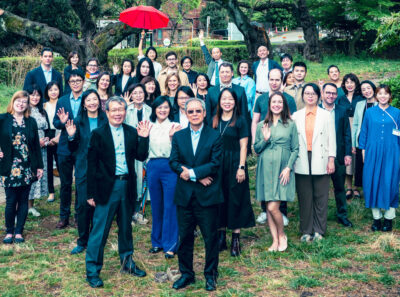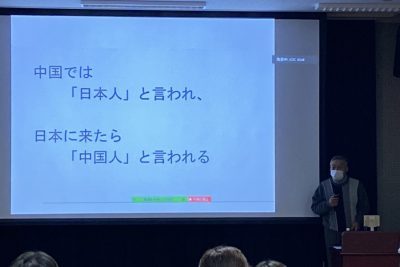Behind the Scenes with UT7 and Tokyo College (Part. 2 of 2)
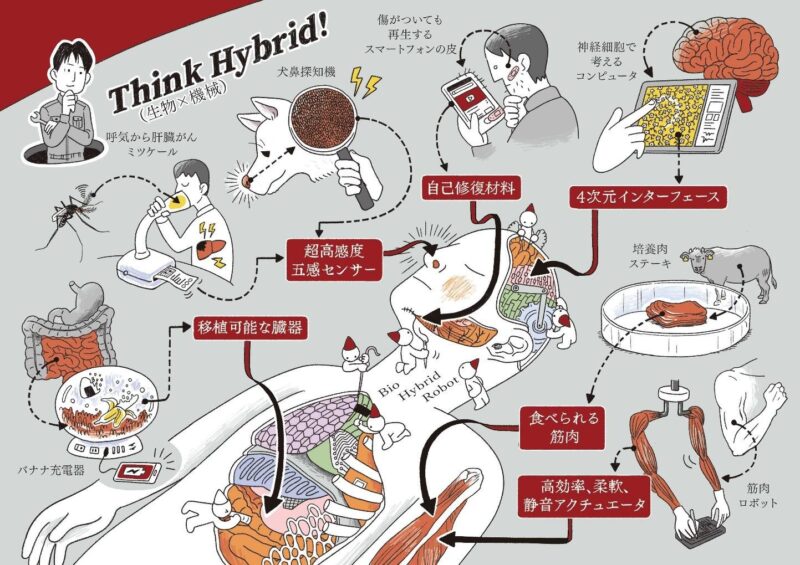
By LI Chunyan, Laur KIIK, Cintia KOZONOI VEZZANI
Continuing from Part 1. of Behind the Scenes with UT7 and Tokyo College.
Dialogue 5
Speaker IGARASHI Kiyohiko (Professor, Department of Biomaterial Sciences, Graduate School of Agricultural and Life Sciences)
In conversation with Laur KIIK (Tokyo College, The University of Tokyo):
Suitably, our interview background was green tree branches dancing in the wind. It reminded us that trees, plants, and all their companion organisms are living alongside us humans. Thirty years ago, Igarashi sensei got fascinated with one such organism – mushrooms—and has since been exploring what we can learn from the superpowers of mushrooms. Mushrooms can help us “kill less.” Because as Igarashi sensei put it, as humans, we always need to kill to live – we cut down forests, we eat other animals, we compete for scarce natural resources. But mushrooms can teach us how to both use wood smarter and even make wood without cutting a tree. Thus, I was struck by how well Igarashi sensei’s journey as a scientist shows that having the freedom to follow one’s curiosity can help all life on Earth. “Even just 10% more freedom” can completely change a scientist’s life, he shared. Curious to hear more? Check out the video here!
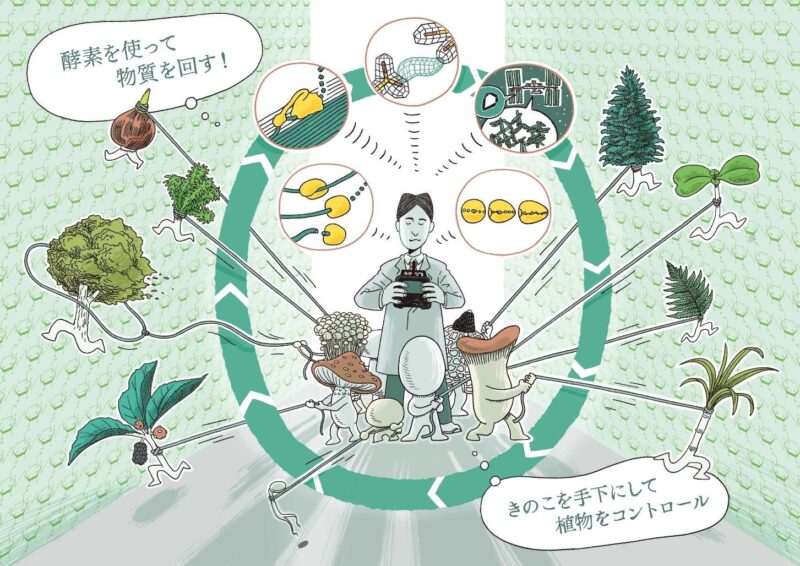
Dialogue 6
Speaker URANO Yasuteru (Professor, Graduate School of Pharmaceutical Sciences & Graduate School of Medicine)
In conversation with LI Chunyan (Tokyo College, The University of Tokyo):
“I will pick you up if you show me where you are now” - a message from Urano sensei lit up my phone screen when the film crew and I were lost in the annex buildings of the medical schools. Urano sensei is THE kind of approachable and gentle professor that one would have imagined about scholars at the University of Tokyo – responding to requests with great patience and always thinking ahead – an important merit of scientists who seek to uncover the unknown. Our interview was conducted in a spacious seminar room with a whole wall of books, overlooking trees and chirping birds outside of the window – a reflection of what Urano sensei has imagined: a world where all living creatures can enjoy life to the fullest. This vision cannot be achieved without advanced diagnostic technologies that can identify early signals of pathological changes – the core of Urano sensei’s research work as depicted in the illustration. Curious to learn more? Click here to watch the interview and listen to how Urano sensei explains the translational work of diagnostic technologies in medical research in his own words.
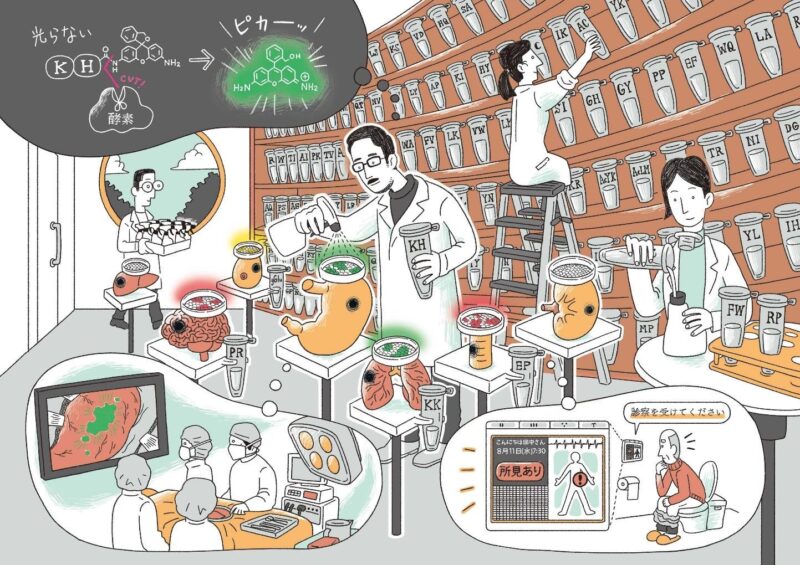
Dialogue 7
Speaker TAKEUCHI Shoji (Professor, Graduate School of Information Science and Technology & The Institute of Industrial Science)
In conversation with Laur KIIK (Tokyo College, The University of Tokyo):
Takeuchi sensei came out of a busy workday, finishing a lunch-time bite and not quite sure what to expect from our interview. His curiosity struck me immediately, as he, instead, began interviewing me before the camera began rolling. Takeuchi sensei talked openly about how much he wants to simply follow his curiosity, regardless of how this research benefits society. His lab brings the superpowers of nature – of muscles, noses, mosquitoes – into our robots and machines, so that they can move, smell, and notice things better. Yet, he did not bend even when I kept cluelessly asking: “And how will this research be useful?!” After our interview, he said that he would like to build a huge anime-character monster-robot, “just because I want to.” But clearly, this research will bring diverse benefits, for better health, for happiness, and for the planet’s nature. Curious to hear more? Check out the video here!

Dialogue 8 & Wrap-Up
Speaker TABATA Kazuhito (Associate Professor, Department of Applied Chemistry, Graduate School of Engineering)
In conversation with LI Chunyan (Tokyo College, The University of Tokyo):
Time flies! The UT7 series concludes with our latest interview featuring Tabata sensei, who graciously provided detailed responses in writing, due to logistical challenges in arranging an in-person interview. If you still have a vivid memory of the past COVID-19 pandemic and are interested in the various mutations of the corona viruses in their favor of survival, you might want to seek Tabata sensei’s advice in understanding how to predict mutation of viral genomes. To put it in a non-scientific-jargon way, it is like unknitting a sweater of a pattern that you don’t fancy and trying to remake it in your favor. While some of the research questions remain distant or even unrealistic to achieve at this moment, “the UT7’s goal is looking at a society about 50 or 100 years … and I think it is important to believe in the feasibility and move forward.” Want to hear more about Tabata sensei’s thoughts about life science and academic research? Check out the video here, which also includes some of our own reflections after the eight intellectually stimulating conversations with the professors.
